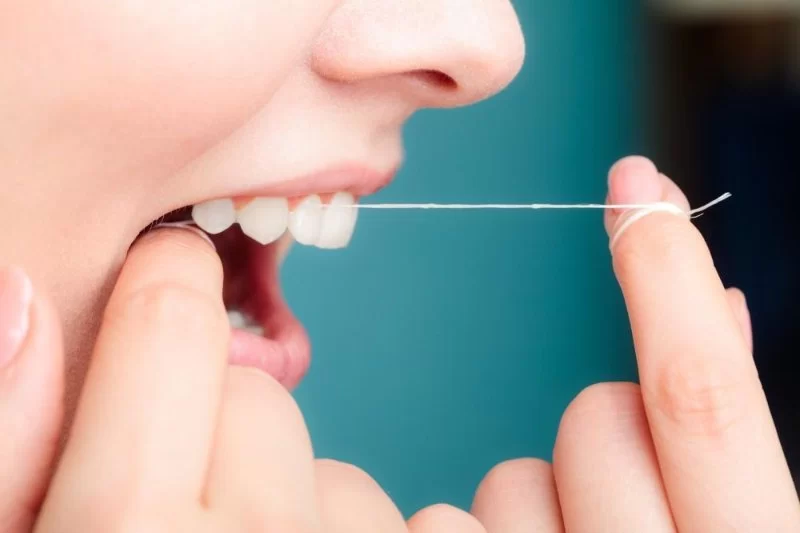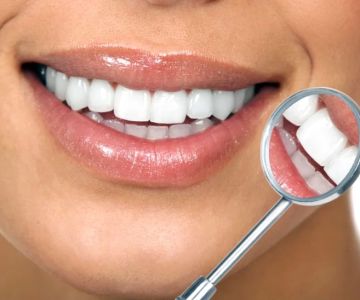
Understanding the Importance of Flossing for Oral Health
Why flossing matters more than you think
When it comes to maintaining a healthy smile, brushing your teeth is only half the story. The spaces between your teeth — where toothbrush bristles can’t reach — are prime areas for plaque buildup and bacteria growth. That’s where flossing comes in. Flossing is essential for removing food debris and preventing gum disease, bad breath, and tooth decay. The question most people ask, though, is: how often should I floss to maintain good oral hygiene?
According to most dental experts, flossing once a day is ideal for optimal oral health. However, it’s not just about how often you floss — it’s about how well you do it. The quality of your flossing technique determines how effectively you clean your teeth and gums. A quick, careless pass between your teeth won’t deliver the same benefits as careful, thorough flossing. The goal is to disrupt the plaque before it hardens into tartar, which can only be removed by a dentist.
The Science Behind Flossing Frequency
What research says about daily flossing
Scientific studies have shown that daily flossing significantly reduces the risk of gum inflammation and periodontal disease. Plaque begins to form within hours after eating and can start hardening into tartar in less than 48 hours. If you floss daily, you break up this cycle and prevent bacteria from damaging your gums.
Some people believe flossing a few times a week is enough, but dental professionals disagree. The American Dental Association (ADA) recommends flossing once a day because consistent cleaning prevents buildup in the most vulnerable areas. Think of flossing as the “maintenance routine” your mouth needs — a small daily effort that yields long-term rewards.
Common Mistakes People Make When Flossing
Why technique matters as much as consistency
Flossing incorrectly can cause more harm than good. One of the biggest mistakes people make is using too much force, which can irritate the gums and cause bleeding. Others skip the back teeth, thinking it’s not important. In reality, those molars are the most prone to decay since they trap food particles more easily.
Here’s the proper technique: take about 18 inches of dental floss, wind it around your fingers, and gently slide it between each tooth in a “C” shape motion. Move the floss up and down, following the curve of the tooth and going slightly under the gumline. Always use a clean section of floss for each tooth to avoid spreading bacteria.
At Family Dentistry Online, dental experts emphasize that gentle and consistent flossing helps prevent gum irritation and builds healthier habits over time. Your gums may bleed slightly at first, but that’s a sign they need attention. Within a few days of regular flossing, the bleeding usually stops as your gum health improves.
Real-Life Example: How Daily Flossing Changed One Patient’s Smile
From bleeding gums to a confident grin
Consider Emily, a 35-year-old office worker who avoided flossing because she thought brushing twice a day was enough. She frequently experienced bleeding gums and bad breath but didn’t think much of it. When her dentist showed her signs of early gum disease, she decided to commit to flossing every night before bed.
After just three weeks of consistent flossing, Emily noticed a huge difference. The bleeding stopped, her gums looked healthier, and even her breath improved. At her next dental checkup, her dentist confirmed that the inflammation had subsided. Emily’s story illustrates a simple truth: flossing doesn’t just protect your teeth — it can transform your overall oral health.
Can You Floss Too Much?
Finding the right balance
While flossing once a day is recommended, over-flossing — especially with poor technique — can cause gum damage or sensitivity. Flossing aggressively multiple times a day can wear down your gum tissue and cause irritation. The best approach is consistency with care. A gentle, thorough flossing session once a day, preferably at night before brushing, is ideal for keeping your mouth fresh and plaque-free.
For people with braces, dental bridges, or implants, using specialized flossing tools such as threaders or water flossers can make the process easier and more effective. These tools help clean hard-to-reach spots without causing unnecessary strain on the gums.
Why Dentists Recommend Daily Flossing Over Alternatives
The professional perspective on oral care
While mouthwash and brushing are essential components of oral hygiene, they cannot replace flossing. Mouthwash kills bacteria, but it doesn’t remove plaque buildup between teeth. Brushing, on the other hand, only cleans about 60% of your tooth surface. Flossing fills in the gap — literally — by cleaning the remaining 40% that your toothbrush misses.
Experts agree that daily flossing is a cornerstone of oral hygiene. Regular dental checkups, combined with flossing and brushing, can help prevent costly treatments in the future. By investing just a few minutes each day in proper flossing, you’re not just maintaining your smile — you’re protecting your overall health.
How to Build a Flossing Habit That Sticks
Turning daily flossing into a lifelong routine
Developing a consistent flossing routine can be challenging, especially for those who find it tedious or time-consuming. One helpful approach is to pair flossing with an existing habit, such as brushing your teeth at night. Keep your floss in a visible spot near your toothbrush as a reminder. You can even set a daily phone reminder until it becomes second nature.
Some people find motivation through results — noticing cleaner teeth, fresher breath, and healthier gums. Once you experience the difference, flossing stops feeling like a chore and starts feeling like self-care. You can also make it more enjoyable by using flavored floss or eco-friendly alternatives that feel smoother and gentler on your gums.
Final Thoughts: Small Habits, Big Results
The lasting benefits of consistent flossing
Maintaining good oral hygiene is about more than just a bright smile — it’s about protecting your health. Daily flossing helps prevent gum disease, cavities, and even heart-related health issues linked to poor oral hygiene. By dedicating just two minutes a day to flossing, you’re investing in a lifetime of better health and confidence.
For expert dental care and personalized advice on improving your oral hygiene routine, visit Family Dentistry Online. Our team is committed to helping families achieve brighter, healthier smiles through simple, science-backed dental habits.







 Kevin B. Sands, DDS5.0 (168 review)
Kevin B. Sands, DDS5.0 (168 review) Smile Reef Pediatric Dentistry5.0 (10 review)
Smile Reef Pediatric Dentistry5.0 (10 review) St Charles Family Dentistry4.0 (329 review)
St Charles Family Dentistry4.0 (329 review) Johnson Orthodontics - Colorado Springs4.0 (1129 review)
Johnson Orthodontics - Colorado Springs4.0 (1129 review) Larchmont Orthodontics PC5.0 (8 review)
Larchmont Orthodontics PC5.0 (8 review) Lindenhurst Village Dental4.0 (46 review)
Lindenhurst Village Dental4.0 (46 review) The Importance of Oral Health Education During Pregnancy for a Healthy Pregnancy
The Importance of Oral Health Education During Pregnancy for a Healthy Pregnancy Best Tips for Brushing Your Teeth Properly for Healthy Gums: Essential Techniques for Oral Health
Best Tips for Brushing Your Teeth Properly for Healthy Gums: Essential Techniques for Oral Health Why Skipping Dental Checkups Can Lead to Bigger Oral Health Problems
Why Skipping Dental Checkups Can Lead to Bigger Oral Health Problems Advantages of Porcelain Dental Restorations
Advantages of Porcelain Dental Restorations How Can Diabetes Cause Tooth and Gum Problems? Preventing and Managing Oral Health Issues
How Can Diabetes Cause Tooth and Gum Problems? Preventing and Managing Oral Health Issues Healthy Habits for Promoting Good Oral Health and Hygiene: Tips for a Healthy Smile
Healthy Habits for Promoting Good Oral Health and Hygiene: Tips for a Healthy Smile